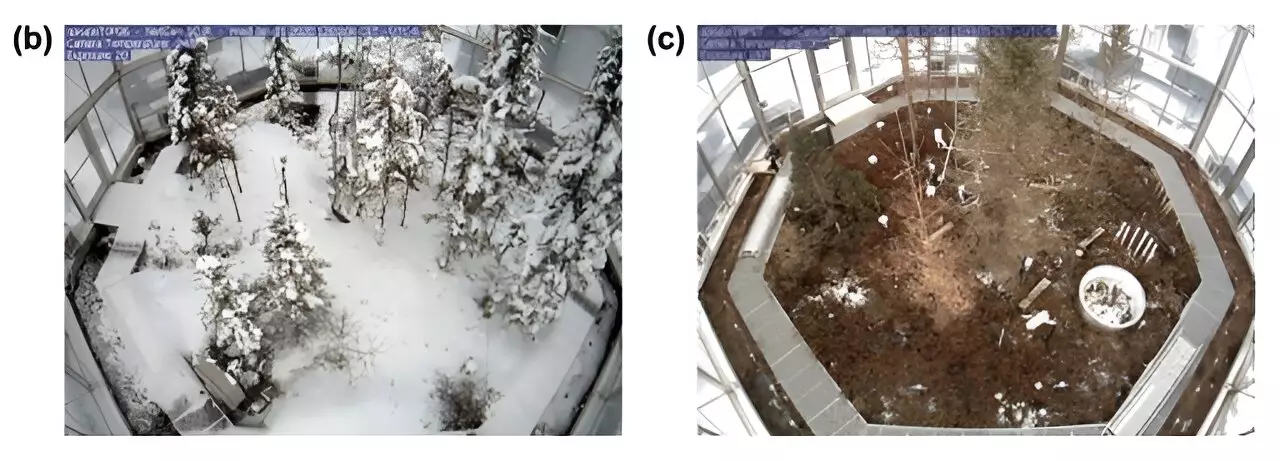The study conducted by Northern Arizona University ecologist Andrew Richardson sheds light on the grave consequences of warming temperatures on northern forests that go beyond what current climate models have predicted. The research emphasizes that even slight temperature increases in boreal forests can result in a drastic reduction in snowpack, which in turn leads to a cascade of negative impacts on the ecosystem.
Unforeseen Severity in Snowpack Reduction
Contrary to expectations, the study revealed that the reduction in snowpack due to increased temperatures is far more severe than initially thought. This reduction causes an increase in the absorption of light and heat into the soil, elevating ground temperatures and, ultimately, warming the air. The implications of this phenomenon are profound, as it accelerates the rate at which the boreal forest – a critical habitat for various ecosystems – is changing.
The findings from the U.S. Department of Energy’s SPRUCE Experiment in northern Minnesota serve as a wake-up call to the drastic changes occurring in these ecosystems. The experimental manipulation of air and soil temperatures within large enclosures highlighted the direct correlation between temperature increases and accelerated snowmelt. The detrimental effects of this snowmelt were observed through changes in plant life and soil ecosystems, leading to increased stress and mortality among vegetation.
One of the key takeaways from this study is the importance of incorporating these new findings into climate models. By understanding how warmer temperatures impact snow cover duration and extent, researchers can enhance the accuracy of predictive models. The ability to isolate temperature as a variable in this study allowed for the collection of valuable data that would be challenging to obtain in natural settings.
While the study focused on boreal forests, the implications extend beyond these regions. Richardson’s concerns about dwindling snowpack and the shift towards more rain in northern Arizona are a sobering reminder of the broader impacts of climate change. The potential consequences for local residents and ecosystems are dire, with stressed forests and altered precipitation patterns on the horizon.
The study underscores the urgent need for proactive measures to address the escalating impacts of climate change on northern forests. The severity of snowpack reduction and its far-reaching repercussions serve as a stark warning of the challenges ahead. By heeding these findings and integrating them into climate modeling efforts, researchers can better prepare for the implications of a rapidly warming world. The time to act is now to safeguard the delicate balance of our ecosystems and mitigate the irreversible damage caused by unchecked climate change.


Leave a Reply